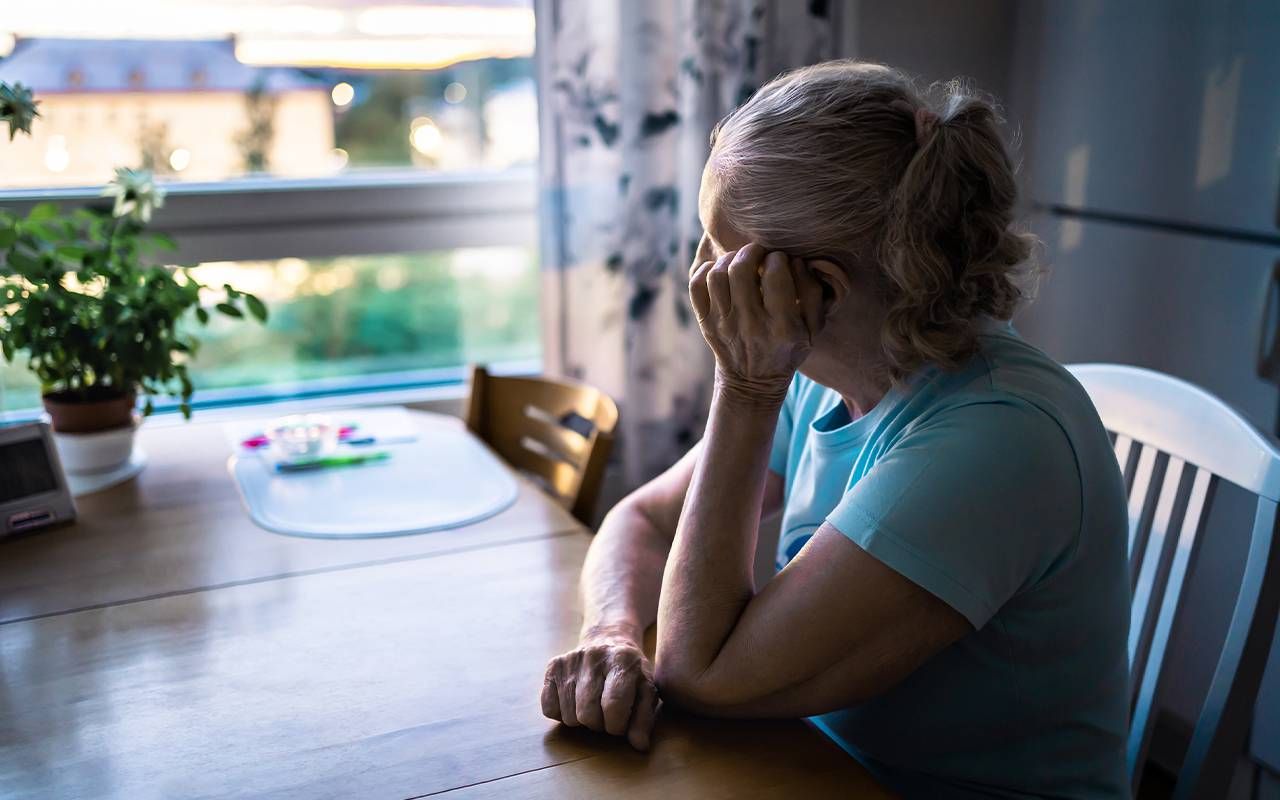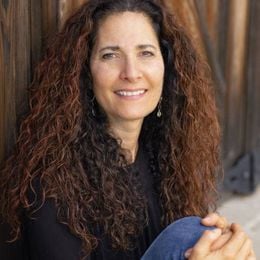When Is It Time to Call a Geropsychologist?
The job of the geropsychologist is to manage or alleviate emotional distress, which can be done in all sorts of ways across a wide spectrum of needs and activities
Maybe you're familiar with this scenario: A parent, spouse or other loved one has started showing signs of dementia or is struggling with what could be depression, anxiety or grief. You've noticed increasing levels of forgetfulness and changes in their personality or behavior.

Perhaps they seem more tired than usual, less interested in their day-to-day activities, or have lost initiative. Maybe you are struggling to handle your new role as a part-time caregiver, or you've developed feelings of sadness and anxiety as the adult child or spouse of an older person with difficulties.
Geropsychology has only been recognized by the APA since 2010, and as of 2022, only 3% of psychologists specialized in it.
Maybe, you think, you should speak to someone. But to whom?
There is the social worker at the assisted living where your struggling loved one lives. A therapist could perform memory and mental health assessments on your loved one and shed some light on what's happening with you. A psychiatrist could prescribe or review medications and suggest treatment options. Or maybe, just maybe, this is a job for a geropsychologist.
But What Exactly Is a Geropsychologist?
The American Psychological Association (APA) defines it as the specialized field of psychology "that applies the knowledge and methods of psychology to understanding and helping older persons and their families to maintain well-being, overcome problems and achieve maximum potential during later life."
Geropsychology has only been recognized by the APA since 2010, and as of 2022, only 3% of psychologists specialized in it. Geropsychologists specialize in understanding the challenges and issues that can arise as people age. Because of this, they know how aging can complicate and sometimes even precipitate mental health problems.
The job of the geropsychologist is to manage or alleviate emotional distress, which can be done in all sorts of ways across a wide spectrum of needs and activities. For example, they can help clients come to terms with significant life transitions, including (for example) retirement, loss of a spouse, or loss of independence (such as no longer driving or moving into an assisted living situation).
They are also adept at helping clients process loss and grief. They can be a vital resource to the family or caregivers of older adults, helping them navigate complex issues around aging, mental illness, and death and dying.
Geropsychologists can be a vital resource to the family or caregivers of older adults
In the case of patients with dementia, treatment options and questions surrounding safety and quality of life, as well as shifting family dynamics, can create havoc; a gerospychologist can help patients and families traverse this sometimes long and confusing journey.
"Our expertise can be invaluable in a variety of situations that older adults and their families face, especially situations that cause significant stress or uncertainty, create family strain or impasses or mental health concerns," says Dr. Regina Koepp, Clinical Geropsychologist and Founder of the Center for Mental Health and Aging in Atlanta.
With specialized training in the assessment and treatment of age-specific challenges such as cognitive decline, mood disorders and the conflicts that can arise between older adults and their caregiving families, geropsychologists can quickly solve for the root of the strife and suggest (and carry out) a plan of treatment for the individual and their family or caregiver.
When Is a Geropsychologist the Right Choice?
According to Koepp, when working with older adults, a mental health clinician must understand what she calls the "dynamic interplay of multiple systems at work" and how these systems intersect and interact.
Aging adults have vulnerabilities, of course, but they also have built up a lifetime of resilience, and the interplay of these systems and abilities must be considered.
Any emotional, intellectual, or behavioral issues may significantly benefit from the expertise of a geropsychologist, including any loss of cognitive functioning, a change in medical status (new or worsening disease or condition), shifting family roles causing strain or discomfort or confusion, and mood disorders such as depression and anxiety.
Do We Need a Specialist?
If your doctor suspects a heart problem, they will refer you to a cardiologist. If you have a rash, you'll see a dermatologist. Vision problems? You won't call your orthopedist for help. While a competent mental health clinician may be able to guide you or your loved one on the road to older adulthood, tapping into the specialized knowledge of a geropsychologist is likely to hit on more cylinders.
Because it is a specialized field of study and practice, they will have extensive knowledge of resources and services available to you and your loved one, and — this is important — they may be able to finesse access to these resources and services more quickly and efficiently than a clinician not specially trained in the field of aging.
"Older adults are not impervious to change and in fact benefit from mental health care at similar rates as other age groups."
That said, Koepp stresses that a first line of attack when worries about your loved one arise should be to reach out to their primary care provider, who can rule out medical or medication issues.
"When mental health symptoms (e.g., irritability, sadness, loss of appetite, worry, angst, thoughts of death and dying, withdrawal from others, changes in sleep, etc.) last two weeks or longer, it can be helpful to connect with a geropsychologist," she says. "The sooner mental health conditions are identified and treated, the better the outcomes."
Unfortunately, what keeps people from calling on a geropsychologist may be the same thing that keeps them from reaching a mental health clinician in general. The idea that depression and anxiety are "normal" aspects of aging may delay people from asking for help for themselves or a loved one.
Further, the notion that dementia is inevitable with aging is also a common misconception. When we believe that what's happening to us or a loved one is "to be expected," we deny treatment that could prove beneficial, and even life-changing, for the sufferer, family, and caregivers.
There are many ways to overlook or underestimate the strengths and capabilities of older adults. We can turn a deaf ear to their plight by telling ourselves what they are going through is "normal" for their age or not that important, given that they are advanced.
We can fail to see them as they are: adults with feelings, conflicts, desires, disappointments, and a wide range of life experiences (i.e., as people). And we can, as a result, fail to get them the best help for what ails them in the form of clinicians, doctors, and specialists. Sometimes, we are guilty of bias even when we aren't aware of it.
When I was a young mental health clinician tasked with performing mini mental status evaluations on nursing home residents, it was hard to see that the people in front of me had once led entire, prosperous lives with relationships, careers, heartaches, joy and everything in between.
The idea that depression and anxiety are "normal" aspects of aging may delay people from asking for help for themselves or a loved one.
I was always surprised if they responded to me angrily or flatly refused to be tested. Weren't older people supposed to be desperate for company? What right did they have to rebuff me when all I was doing was my job? Looking back, I am horrified by these thoughts; as an older adult, I now recognize them as ageist and stereotyping.
Koepp says, "I've heard many well-meaning, highly credentialed mental health providers question if older adults benefit from mental health care, reciting the stereotype, 'Is it worth recommending mental health care? How much change can we expect to see? After all, older adults are rigid and never change, right?'"
Koepp disagrees vehemently with this assessment."Older adults are not impervious to change and in fact benefit from mental health care at similar rates as other age groups," she says.
No Two 65-Year-Olds Are Alike
Kelly Trevino, Ph.D., director of the Psycho-Oncology in Aging and Cancer Laboratory at Memorial Sloan Kettering Cancer Center in New York City, says, "One of the main messages that geropsychology is trying to get out is, if you've met one 65-year-old, you've met one 65-year-old."
That is, the geropsychologist's typical patient population is anything but typical. On any given day, they treat a mix of patients with diverse backgrounds, needs, and goals, from the recently retired to the adult child suffering burnout from their caregiving duties to patients motivated to make emotional shifts in their lives even into their eighties and nineties.
Moreover, as reported by the U.S. Department of Health and Human Services Administration for Community Living, there were only 17 million Americans age 65 or older in 1963. By 2020, there were 55.8 million (16.8% of the U.S. population). By 2030, adults 65 and older will comprise more than 20% of the population.
For the APA, there were approximately 660 geropsychologists as of 2021. Considering the growing population of 65+ Americans, the U.S. will need 5,790 more geropsychologists by 2030.
Ready for help? A free national provider directory from the Center for Mental Health and Aging is available here. Click this link and plug in your area code to find additional resources.

Read More

